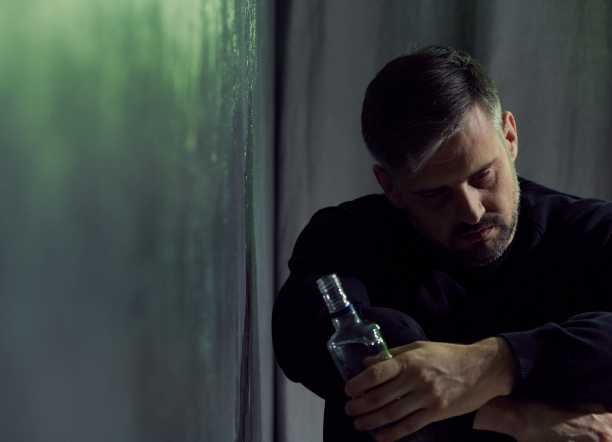Alcohol withdrawal refers to the physical and psychological symptoms that people experience when they stop drinking.
Symptoms can range from mild to severe, including anxiety, insomnia, and seizures. According to the American Addiction Center, an estimated 3-5 percent of people who experience alcohol withdrawal develop a severe form of withdrawal.
- Alcoholism Signs & Simptoms
- Alcohol Withdrawal Symptoms
- Drug Addiction
- Helping a Loved One
- Xanax Addiction Treatment in Florida
- Fentanyl Addiction Treatment in Florida
- Cocaine Addiction Treatment in Florida
- Heroin Addiction Treatment
- Opiate Addiction Treatment
- Opioid Addiction Treatment
- Meth Addiction Treatment
Drugs & Alcohol Abuse
Alcohol withdrawal is a common experience for individuals with alcohol use disorder who attempt to quit drinking on their own.
What Causes Alcohol Withdrawal?
Alcohol withdrawal is caused by the changes that occur in the brain and body when a person stops drinking alcohol after prolonged or heavy use. Factors that contribute to alcohol withdrawal include:
- Imbalance in neurotransmitters: GABA is an inhibitory neurotransmitter that helps to calm the brain, while glutamate is an excitatory neurotransmitter that stimulates the brain. Alcohol affects the balance between these two neurotransmitters, and when a person stops drinking, their brain struggles to maintain balance, leading to withdrawal symptoms.
- Dehydration: Alcohol is a diuretic, which means that it causes the body to lose fluids. When a person stops drinking, they may become dehydrated, contributing to symptoms like headaches, dizziness, and confusion.
- Inflammation: Chronic alcohol use can cause inflammation throughout the body and the brain. This inflammation can worsen withdrawal symptoms and increase the risk of seizures.

Common Alcohol Withdrawal Symptoms
Withdrawal symptoms typically begin within 6 to 12 hours after the last drink and peak within 24 to 48 hours. The timeline can vary depending on several factors, including the individual’s level of alcohol dependence and overall health. Here are the common alcohol withdrawal symptoms:
Physical Symptoms
1. Tremors or shaking hands
2. Sweating
3. Headaches
4. Nausea and vomiting
5. Insomnia
6. Increased heart rate and blood pressure
7. Fever
8. Seizures
9. Delirium tremens (DTs), a severe form of withdrawal that includes hallucinations, confusion, fever, and seizures
Psychological Symptoms
1. Anxiety
2. Depression
3. Irritability or agitation
4. Mood swings
5. Fatigue or lack of energy
6. Difficulty concentrating
7. Memory problems
8. Intense cravings for alcohol
The Severity of Alcohol Withdrawal Symptoms
Alcohol withdrawal symptoms can range from mild to severe, depending on several factors. Here is a breakdown of the different levels of severity:
- Mild Symptoms: Mild symptoms typically occur within 6-12 hours after the last drink and can include tremors, sweating, headache, nausea, vomiting, anxiety, insomnia, and palpitations.
- Moderate Symptoms: Moderate symptoms can occur within 12-48 hours after the last drink and can include hallucinations, seizures, high blood pressure, rapid heart rate, and fever.
- Severe Symptoms: Severe symptoms of alcohol withdrawal can occur within 2-4 days after the last drink. This can include delirium tremens (DTs), a severe form of withdrawal that includes confusion, disorientation, fever, seizures, hallucinations, and agitation.
Risk Factors Of Severe Alcohol Withdrawal Symptoms
Several risk factors can increase the severity of alcohol withdrawal symptoms, including:
- Heavy and prolonged alcohol use: Individuals who have been drinking heavily and for an extended period are more likely to experience severe withdrawal symptoms
- Previous history of alcohol withdrawal: People who have gone through alcohol withdrawal in the past are more likely to experience severe symptoms in subsequent withdrawals
- Co-occurring medical or mental health conditions: Medical conditions such as liver disease and mental health conditions such as depression and anxiety can increase the risk of severe alcohol withdrawal symptoms.
- Abrupt cessation of drinking: Stopping drinking suddenly or “cold turkey” can increase the severity of withdrawal symptoms.

Treatment for Alcohol Withdrawal Symptoms at Genesis House

The treatment approach at Genesis House is tailored to each patient’s needs. It may involve a combination of medical and behavioral interventions to ensure the best possible outcome. Genesis House offers a comprehensive approach to treating alcohol withdrawal in Florida that includes the following:
Medical Detoxification
Medical detoxification is the first step in treating alcohol withdrawal symptoms at Genesis House. During detox, patients are closely monitored by medical professionals who can help manage symptoms and prevent complications. This may include medication-assisted treatment to reduce withdrawal symptoms and prevent seizures or other serious complications. We provide a safe and supportive environment for patients to undergo detox and start their recovery journey.
Behavioral Therapies and Support Groups
Behavioral therapies and support groups are an important part of alcohol addiction treatment at Genesis House. These approaches can help patients address underlying issues that may have contributed to their alcohol use. It teaches them to develop positive coping skills and build a support network for their recovery.
Genesis House offers a range of evidence-based therapies, including cognitive-behavioral therapy (CBT), individual counseling, and group therapy. Patients also have access to support groups such as Alcoholics Anonymous (AA) and other 12-step programs for alcohol withdrawal in South Florida.
Behavioral Therapies and Support Groups
Alcohol withdrawal symptoms can be uncomfortable and even life-threatening. If you or a loved one are experiencing alcohol withdrawal symptoms, don’t hesitate to reach out for help. Our team of experienced professionals provides personalized care and support to every patient. We will guide you through the journey to sobriety with compassion and expertise. You are not alone, and there is hope for recovery.

Take the first step towards living a fulfilling life.
Call us at 855-936-4435 to learn more about our alcohol withdrawal treatment programs

